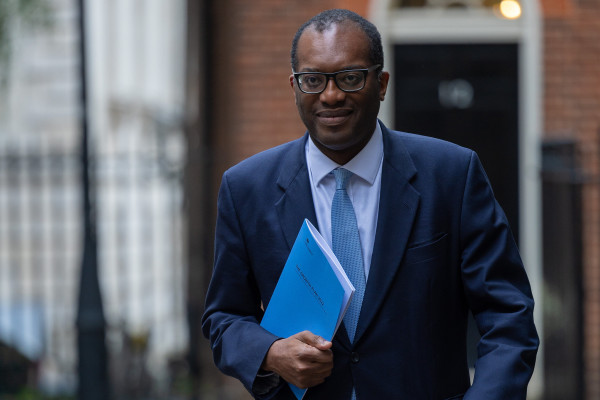

In the space of a month the new prime minister and her government have made economic decisions that ended up shafting sterling, forcing the Bank of England to do a temporary volte-face on quantitative tightening, and attracting the attention of the International Monetary Fund.
The tax cuts so boldly promised in the election run up (and so soundly warned against by former chancellor Rishi Sunak) have not been met with the anticipated accolades and approbation.
A nation whose small businesses, entrepreneurs and ordinary folk already combating the after-effects of the pandemic, the long tail of Brexit and exponential inflationary pressures have responded angrily to the inappropriately dubbed "mini" Budget.
One needs only to look at social media or listen to the radio or watch the evening news. Everyone from fund managers to mortgage advisers and Uber drivers are shell-shocked.
Mortgage advisers on Twitter right now are debating whether 2022 will turn out to be worse than the financial crisis of 2008.
The sentiment is understandable but there are significant differences.
Back then, financial markets worldwide collapsed as packages of bad debt brought down some of the world's largest AAA-rated organisations. Central banks responded with quantitative easing, slashing rates and buying government bonds.
Banks cut their lending rates and their savings rates. Businesses went under. The mortgage market all but collapsed.
But then, the country had not been clambering its way out of a global pandemic. The UK was still in Europe and had secure trading agreements in place. Inflation was nowhere near as high as it is now.
Austerity was imposed on the UK and we hoped we would see the end of it, and then came Brexit; then Covid; then Russia's invasion of Ukraine, which helped to push up inflation and energy prices globally.
True, the mortgage market has been resilient so far, but one adviser predicts 2022 is the start of something much, much worse: "2008 was the beginning of the end, but the crisis started in August 2007. There was still momentum as there is now."
Economic gamble
The plans originally outlined by Prime Minister Liz Truss as part of her "new era" of Trussonomics had been posited as a means of helping families out from the doldrums; certainly the energy pledges were a welcome measure.
Just before the "mini" Budget, Annabel Brodie-Smith, communications director of the Association of Investment Companies, said: “The package of measures the chancellor [is expected to announce] are a revolutionary step up for growth and investment in the UK economy and will benefit UK investors."
But as the details came out in the wash and economists started to price in the effects of tax cuts, markets started to wobble.
By close of play on Friday 23 September, it was clear in which direction the UK was heading.
Brian Tora, consultant at wealth managers JM Finn, had this to say: "Our own stock market hardly greeted the news with enthusiasm. With markets weak on the other side of the Atlantic, shares had already been drifting lower, but the initial reaction to this so-called fiscal event was an accelerated fall as sellers gained the ascendency.
"There is little doubt that the new administration is gambling on economic growth being propelled higher, but one consequence could be further upward pressure on inflation."
It may have been ballsy in intention but the fiscal statement seems to have been a balls-up in execution. Right now that gamble on higher economic growth has not paid off. Not at all.
After a few days in hiding – maybe in former prime minister Boris Johnson's fridge – Truss took to the radio to do series back-to-back interviews on September 28. She insisted she would not change course on the economy. She said it was to stave off a recession.
Markets did not believe her. The sell-off in sterling resumed.
What happens to us is going to affect a heck of a lot of other countries, such is globalisation.
As Tora commented: "Realistically we have a great deal to digest, following recent pronouncements. Investors, already nervous that recessionary times are unlikely to be avoided in the short term, seem set to remain in a cautious mood."
Cautious is one word for it.
It's not the word many advisers are hearing from their clients right now. But again, those words are too rude for this article. Go to Twitter.
Nigel Green, deVere Group's chief executive, and many of whose clients are British expats whose pensions have been hammered by the drop in sterling, said: "Liz Truss and her chancellor Kwasi Kwarteng have created a loop of doom."
Goodness only knows what we will see on November 23 when chancellor Kwasi Kwarteng makes his next statement. I've worked through 22 spring Budgets and almost as many Autumn statements, and I am dreading what he might do.
Will the government break their triple-lock pledge to pensioners? Likely.
Will they find a way to dip into people's pension pots at the same time as removing some tax caps? HMRC just published data showing it took in more than £382mn in charges for pots in excess of the lifetime allowance. Will the government maintain the freeze until 2026 or risk losing the economy money by removing it altogether?
Whatever they decide to do, they have two months to work out the economic impact of their actions, because I cannot see how Britain can endure another balls-up of a Budget.
Simoney Kyriakou is editor of FTAdviser





